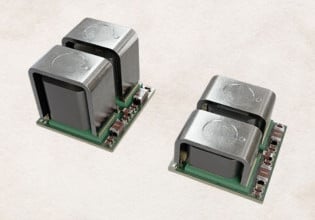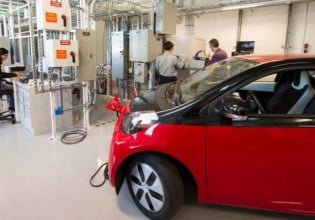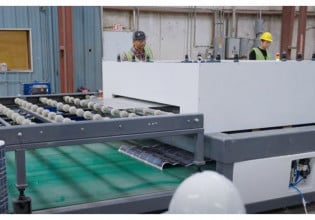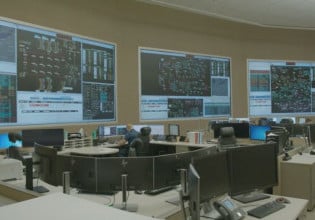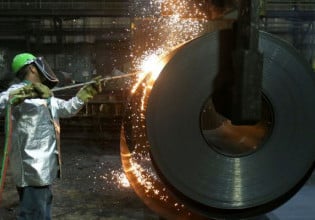Bel Fuse Inc. announced that it sent the following letter to the Board of Directors of Toko, Inc., addressed to Shigeru Kawatsuhara, President and Representative Director of Toko, Inc. Bel CEO Dan Bernstein wrote:
"Dear Mr. Kawatsuhara,
"As you know, my company’s subsidiary Bel Ventures,Inc. is a major shareholder owning approximately 2% of the outstanding shares of Toko, Inc. As a large shareholder, Bel Ventures Inc. is deeply concerned and extremely dissatisfied with the present strategy, management, and performance of Toko Inc. In particular, we are dissatisfied with the following:
"1. Toko continues to have extremely poor financial performance. Over the past seven years, Toko has recorded over 20 billion yen of net losses in the aggregate, and less than 1 billion yen of net income. On a net basis, therefore, approximately 19 billion of shareholder value has been lost. This huge amount of aggregate loss is approximately equal to Toko’s current total market capitalization. Hence, if Toko continues to perform in the same way, in seven years the company’s shareholder value could well be driven down to zero.
"2. The company continues to make massive investments of cash in business units that are clearly under-performing, not profitable, and not growing – such as the semiconductor unit. As you know, despite the aforementioned hideous financial performance, Toko has continued to make large capital expenditures – an aggregate amount of about 13.3 billion yen of capital expenditures over the past three years. In addition, 4.1 billion yen of capital expenditure is planned for the next fiscal year. Thus, not only is Toko recording huge negative operating cash flow as described above, but it is also losing further value by making investments in certain units – such as semiconductors – which for many years have been proven to be unprofitable under Toko’s management.
"3. Toko has not divested its semiconductor division, the largest unit of which is well known to be the largest source of unprofitability and cash drain. It is not at all surprising that this business unit has failed, because as a capital-intensive business, semiconductors does not fit with the company’s strategy, core competencies, and balance sheet size. I am sure you will recall that 18 months ago and even before that, Bel Fuse strongly recommended that this division should divested.
"4. The fact that the Toko board has still not shown any detailed and credible plan for restructuring of the company, recovering profit and growth, and halting the current seven-year trend of consistent losses and the deterioration of shareholder value. If this slide continues, eventually Toko will have to cease doing business, its customers will lose their supplier, and its employees will lose their jobs.
"5. The incredible fact that despite all of the above, it appears that Toko is so insensitive to shareholders’ concerns and desirous to protect the positions of its executives, that at the upcoming shareholders meeting on June 27, it intends to submit its takeover defense plan to shareholders for re-approval. With respect to this defense plan, it is my understanding that:
"a) The defense plan has a design that is one of the more stringent and protective of management in Japan, allowing wide flexibility to stop TOBs or other offers for the company for reasons that could be struck down in Japanese court; and that it is in order to lower this risk that shareholder approval is being sought;
"b) The plan’s implementation would be advised upon (but legally, not controlled) by a "special committee" that has no validity or decision-making authority under the Company Law, and the recommendations of which need not be followed by the Toko board;
"c) The aforementioned "special committee" does not include any independent outside directors, who (if present) might be able to render reliable and unconflicted judgments to maximize outcomes for all shareholders and stakeholders of Toko based on detailed knowledge of Toko, its management and it strategy gained in regular attendance at recent board meetings;
"d) Instead, the proposed "special committee" includes a former Toko board director, Mr. Maeda, who in this case has a strong incentive to act in a self-defensive manner, because he sat on the board for five out of the past seven years in which Toko produced huge financial losses, and just resigned for reasons that could well have been related to that poor performance;
"e) The other two members of the "special committee" may or may not have conflicts of interest, but in any event do not appear to have any past relevant experience that related to the electronics devices business, coils, semiconductors, company valuation analysis, or M&A negotiations.
"f) Since none of the members on the "special committee" will sit on Toko’s board and apparently will not attend regular meetings with management, they cannot be expected to make decisions based on a deep understanding of the company’s recent condition, strategy, and management. If anything, inasmuch as they are being appointed by the (poorly performing) management of Toko rather than by shareholders, they can probably be expected to automatically make decisions that comply with the wishes of that management team in nearly every case.
"I would like to emphasize that while we still have an interest in merging with Toko and believe that we are a logical choice, in communicating the above points our main concern is maximizing Toko’s stock price to the benefit of all Toko’s stockholders. Accordingly, we believe that the company should take the necessary steps to implement the changes in the structure of the company that we have recommended above, and in the past. We would look forward to meeting with the Toko Board of Directors to further outline our suggested strategy."


